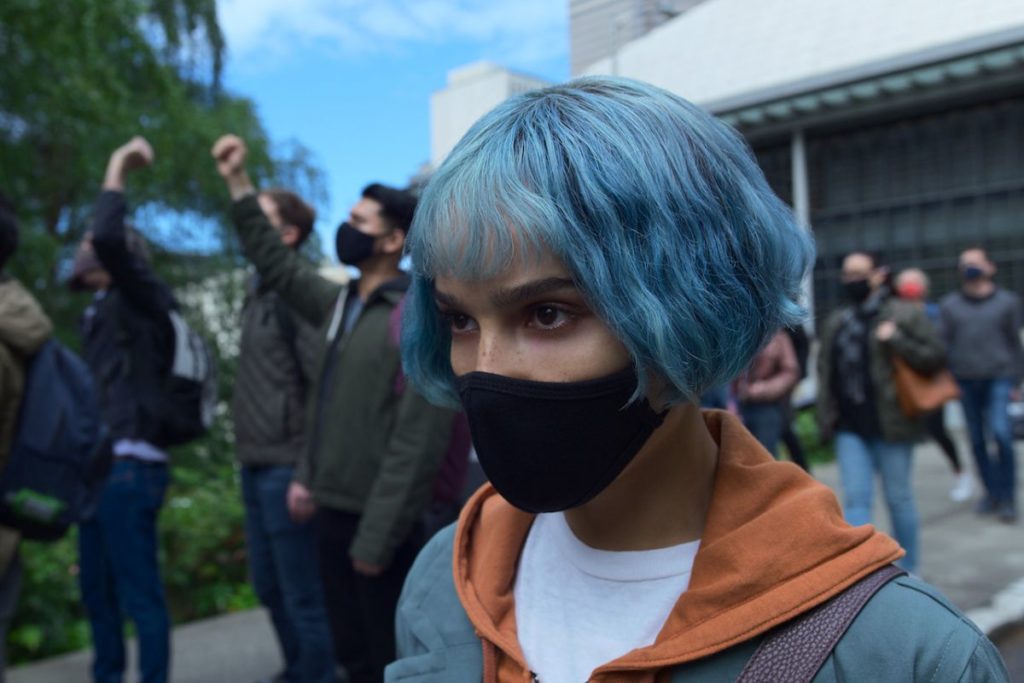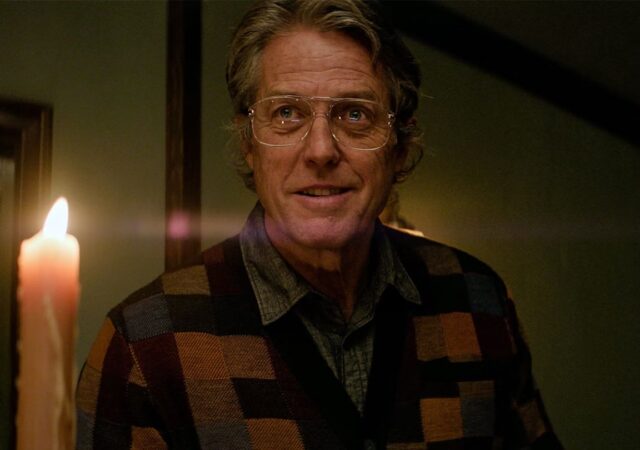Kimi dips into a familiar well that the likes of Rear Window and Panic Room took inspiration from: thrillers that feature stalkers stumbling into disturbing information. Directed by Steven Soderbergh, a seasoned director who has directed the likes of the Ocean’s franchise, and the Oscar-winning Traffic, Kimi updates its familiar trappings by couching it around modern technology and setting it in a post-COVID landscape.
Angela Childs (Zoë Kravitz) lives in a spacious Seattle loft and works at a technology company whose main product is Kimi, an AI-powered voice assistant speaker. She monitors streams where the speaker wasn’t able to correctly answer its users queries and codes solutions to teach the AI to answer these queries successfully. Suffering from an agoraphobia that has been exacerbated by the pandemic, Angela almost has a panic attack when she tries to go outside. Her only point of face-to-face contact is Terry (Byron Bowers), a man who lives across the street. Angela hooks up with him and then meticulously cleans her sheets.
Her daily routine is disrupted when she discovers screams in a recorded stream, and once she digs deeper, she finds a sinister coverup that has ties to her own company. As she tries to report the incident and then notify the authorities about it, she soon finds herself being pursued by shadowy individuals as she goes out into the world for the first time in months.

Soderbergh, who also edited the film under the pseudonym Mary Ann Bernard, creates a razor-sharp narrative that usually feels grounded.
Writer David Koepp, who also wrote Panic Room, has penned a tight script that deal with character issues and social commentary without beating the audience over the head with the movie’s themes. Soderbergh and Koepp build the tension until it starts boiling over as Angela leaves her apartment and the camera becomes frantic and slanted as she speed-walks through the streets.
The thriller aspect of the story is mostly robust. It’s not really the two hired goons pursuing Angela that frighten you, but a hacker named Yuri who can track Angela using her phone, even after she has turned it off. Koepp ties in threads seeded earlier in the story to build an effective climax. These sequences are unfortunately hampered by the utter incompetence and stupidity that the killers spontaneously develop at the most inopportune times, allowing Angela just enough room to wiggle out of their grasp and live to fight another day.
The ending of the story is also too convenient, especially the part where Angela seems to be cured of her agoraphobia due to her near-death experience. Still, Kimi throws effective narrative punches as it reveals the source of Angela’s agoraphobia and the reason she’s reluctant about going to the police directly. The seemingly supportive company executive with an Indian surname turns out to be performatively empathetic and throws Angela to the wolves.
Overall, Kimi lands more hits than it misses. Kravitz, who occupies the screen at almost all times, turns in a believably numbed performance as someone whose life has adjusted around her lingering trauma. Soderbergh also deserves thanks for continuing to deliver solid affairs after his return from brief retirement.
If you decide to watch Kimi, maybe it’s best to temper your expectations. It’s a simple story that’s effective more than outstanding, a fact that might be obscured by the movie’s high Rotten Tomatoes critic score. If you’re up for a one-and-half hour flick to kill time before sleep or to decompress on a weekend, then Kimi will go down as smoothly as freshly-squeezed-orange juice. Just don’t expect it to be scotch.



























